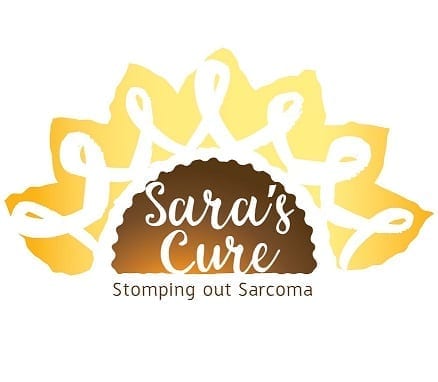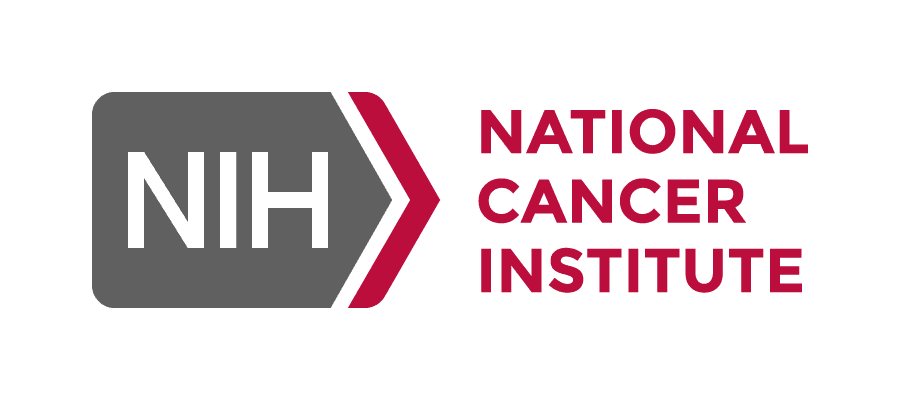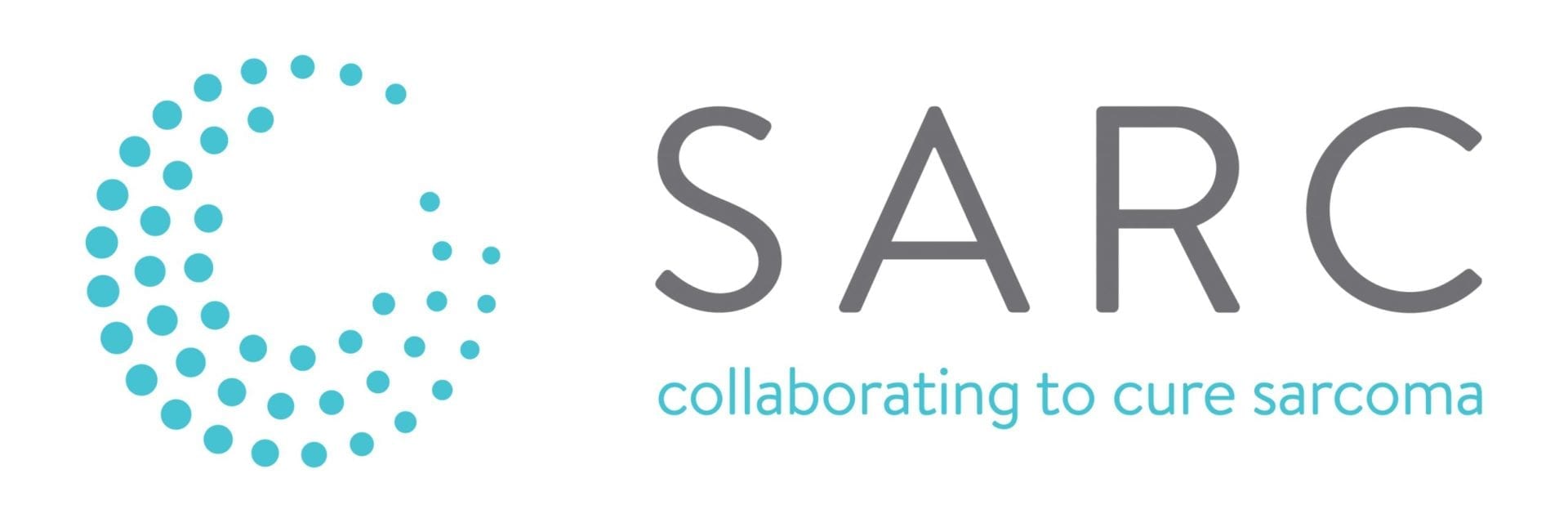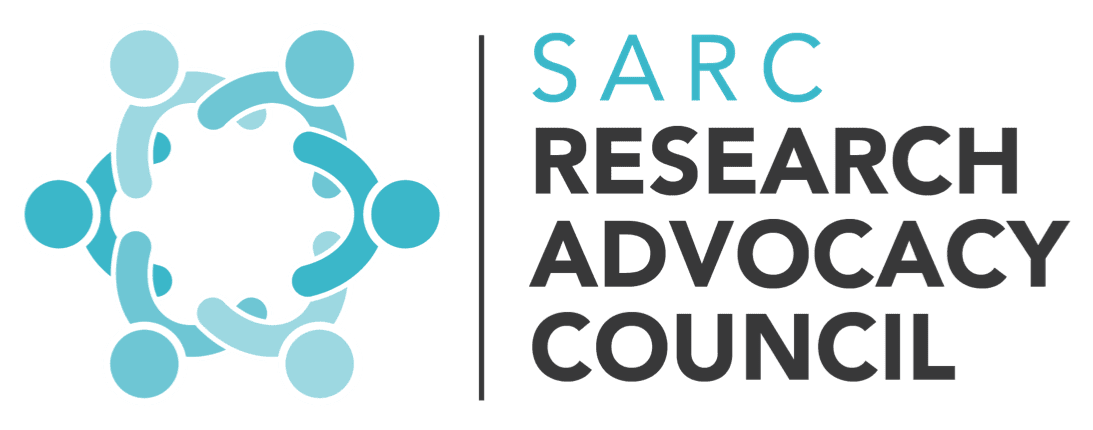Research Partners
Sara's CureNatural History Study of Rare Solid Tumors | FAQ
What is the Natural History Study of Rare Solid Tumors?
The Natural History Study of Rare Solid Tumors studies people with rare tumors over time. The goal of this study is to collect information from rare tumor patients to learn how the tumor grows and develops. This helps researchers understand these rare tumors better so that they can develop new treatments.
How do I participate in the study?
First, you will provide a saliva sample and medical records from your doctor. We will collect any samples of your tumor that may be available from a past biopsy or surgery. You will fill out questionnaires about your medical history, your family’s medical history, and how having a rare tumor impacts your life. You may be invited to NIH to see doctors here and while you are here, we will collect blood and other samples, such as stool. You may also be invited to participate in focus groups about how living with a rare tumor affects your life, but you do not have to participate in these groups. Once a year, we will send you a follow-up form to record any changes in your health.
What do you do with my samples?
Your saliva and tumor samples will be used to perform genetic testing. We will combine your data with data from other people with the same tumor. If we collect blood, we will look at what kinds of cells and molecules are in your blood stream that might affect your tumor. We will look at how your immune system and digestive system work. Your samples may also be stored for future research. We will share the information we learn with other scientists while protecting your privacy. This way many scientists can work on new treatments for your kind of tumor.
What are the risks of participating in this study?
The Natural History Study of Rare Solid Tumors is not a treatment trial, so we are not testing whether an experimental treatment will work or if it is safe. Because you are not exposed to an experimental treatment, natural history studies are considered very safe and have very minimal risks.
Do I have to travel to the NIH Clinical Center to participate?
No. You can provide your saliva sample and other information from home. However, based on a review of your medical records, you may be invited to the NIH Clinical Center to meet with experts who will perform additional tests and answer any questions you have.
Can I receive treatment for my rare tumor?
Yes. You can receive treatment for your cancer while participating in the natural history study. The natural history study is not a treatment trial. Therefore, you can continue to receive the recommended care for your cancer or participate in a treatment trial. If we know of a treatment trial that we think could help you, we will let you know.
Will my genetic testing results be returned to me?
Some of the results will be returned, but some will not. Your tumor will be tested for common cancer mutations and results may suggest drugs that could treat your tumor. If we suspect that cancer may run in your family, we may test your blood or saliva for mutations, too. These results will be shared with you and your doctor. Some of the genetic testing we perform is to find new mutations and this is not the same as having genetic testing ordered by a doctor. We will share with you the combined results from many people with your tumor, but we will not tell you the results from your tumor alone. We do not charge you or your insurance company for the genetic testing that we do.
How can I learn more about the study?
You can contact us at NCICCRRareTumorClinic@mail.nih.gov. Visit us online at cancer.gov/mypart. Follow us on Twitter @NCI_CCR_PedOnc.
U.S. Department of Health & Human Services | National Institutes of Health
About Sarc
SARC (Sarcoma Alliance for Research through Collaboration) is a non-profit organization dedicated to the development and support of research for the prevention, treatment, and cure of sarcomas – a cancer of the bone and connective tissue of the body.
SARC was founded by a small group of physicians specializing in sarcoma. Recognizing the value of pooling their intellectual and patient resources, a core group of medical and pediatric sarcoma experts at five major medical facilities formed SARC in 2003 to conduct innovative and rigorous sarcoma research to advance the care of their patients. Today, the leadership of SARC consists of respected sarcoma physicians across the country, working together to develop new strategies to improve the outcomes for sarcoma patients.
About BROAD
Broad Institute of MIT and Harvard was launched in 2004 to improve human health by using genomics to advance our understanding of the biology and treatment of human disease, and to help lay the groundwork for a new generation of therapies.
About PATTERN
Cancer research is broken. The connections between cancer patients and scientists are weak and, as a result, scientists don’t have the access to tumor samples and medical information they need to develop treatments. This problem is even worse for rare cancers, since most medical centers see too few rare cancer patients to observe the patterns of the disease.
Pattern.org is a flexible platform bridging the gap between cancer patients and scientists. Pattern.org enables cancer patients to directly donate their tumor tissue and medical data to high-impact research projects. In this way, Pattern.org empowers patients to be directly involved in cancer research.
Tissue and medical data shared by patients through Pattern.org help scientists develop next generation cancer models, which will be made widely available to the research community. Using these models, researchers can identify cancer’s key points of vulnerability and accelerate drug development.
The future in cancer treatment lies in making treatments specific to patients. To get there, patients and researchers need to join forces in understanding the disease. Pattern.org is building an ecosystem which brings stakeholders together, giving researchers the opportunity to identify paths to improve patient outcomes.
Pattern.org, was launched by the Rare Cancer Research Foundation (rcrf.org) a 501(c)3 non-profit dedicated to curing rare cancers through strategic investments and collaborations that catalyze effective research and accelerate deployment of promising therapies.
about Sarc RAC
The SARC Research Advocacy Council was created using the model established by the National Cancer Institute (NCI) for engagement of patient advocates to become “research advocates” across four key functions: advise, design, review, and disseminate. A number of individual patient advocates have agreed to serve as research advocates on the SARC Research Advocacy Council. The council convenes regularly to explore opportunities to interface with researchers.
About NCCN
The National Comprehensive Cancer Network® (NCCN®) is a not-for-profit alliance of 30 leading cancer centers devoted to patient care, research, and education. NCCN is dedicated to improving and facilitating quality, effective, efficient, and accessible cancer care so patients can live better lives. Through the leadership and expertise of clinical professionals at NCCN Member Institutions, NCCN develops resources that present valuable information to the numerous stakeholders in the health care delivery system.
Clear Cell Sarcoma Project Update | January 2020
Clear Cell Sarcoma Project Update | September 2019
Clear Cell Sarcoma Project Update | July 2019
Give Today
$5
$10
$50
$250
$500
Other







